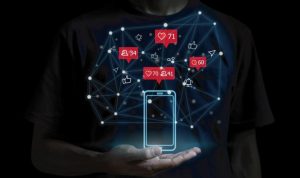Streaming Series That Changed the Way We Binge has become a defining phenomenon in modern entertainment, reshaping how audiences consume content. With the rise of platforms like Netflix and Hulu, binge-watching has transformed from a guilty pleasure into a mainstream pastime. The allure of entire seasons available at the click of a button has influenced not only viewing habits but also the way series are produced and marketed.
As we dive deeper into this topic, we’ll explore the innovative storytelling techniques, the emergence of binge-worthy formats, and the cultural impact these series have on viewers across the globe. From the nostalgic charm of early hits to the groundbreaking narratives of today, the evolution of streaming series continues to captivate audiences and redefine our relationship with television.
Over the past few decades, technology has dramatically transformed the way we live, work, and communicate. From the advent of the internet to the rise of smartphones, each innovation has reshaped our daily experiences and interactions. This article delves into the evolution of technology, exploring its various stages and the profound effects it has had on society.
The Rise of the Internet
The foundation of modern technology can be traced back to the development of the internet in the late 20th century. Initially a project funded by the U.S. Department of Defense, the internet rapidly expanded to become a global network connecting millions of users. With the introduction of the World Wide Web in the early 1990s, information became more accessible than ever before.
The internet revolutionized communication, allowing people to connect across vast distances in real time. Email replaced traditional mail, and instant messaging services emerged, transforming the way we interact. Social media platforms like Facebook, Twitter, and Instagram further bridged gaps between individuals, fostering communities that span the globe.

Mobile Technology and Smartphones
The introduction of mobile phones marked another significant milestone in technology’s evolution. Initially bulky devices used primarily for voice calls, mobile phones have since evolved into powerful smartphones capable of performing numerous functions. With the integration of internet capabilities, smartphones have become essential tools for communication, entertainment, and productivity.
Smartphones have transformed how we access information, allowing users to browse the web, stream videos, and participate in social media on the go. The convenience of having a computer in our pockets has changed our expectations regarding availability and responsiveness. Moreover, mobile technology has played a crucial role in shaping industries such as retail, healthcare, and education.
The Impact on Work Culture
Technology has also reshaped our work culture. Remote work has become increasingly prevalent, particularly following the COVID-19 pandemic. Tools such as Zoom, Slack, and Trello have enabled teams to collaborate effectively without being physically present in an office. This shift has led to discussions about work-life balance, productivity, and employee well-being.
While remote work offers flexibility and convenience, it also presents challenges. The blurring of boundaries between work and personal life can lead to burnout, making it essential for individuals to establish clear boundaries. Employers, too, must adapt their management strategies to support remote teams and maintain morale.
Artificial Intelligence and Automation
As technology continues to advance, artificial intelligence (AI) and automation have emerged as game-changers in various sectors. From chatbots that provide customer support to algorithms that analyze data, AI is transforming how businesses operate. Automation has streamlined processes, reducing repetitive tasks and allowing employees to focus on higher-level responsibilities.
However, this technological advancement raises questions about the future of work. As machines become capable of performing tasks traditionally handled by humans, concerns about job displacement and the need for reskilling the workforce have come to the forefront. Navigating this transition requires a proactive approach to education and training, ensuring that workers are equipped for the jobs of tomorrow.
Social Implications of Technology: Streaming Series That Changed The Way We Binge
The impact of technology extends beyond the workplace, influencing social dynamics and personal relationships. The rise of social media has changed how we connect with friends and family, for better or worse. While these platforms offer opportunities for staying in touch, they can also contribute to feelings of isolation, anxiety, and depression.
Moreover, the spread of misinformation and the echo chamber effect posed by social media algorithms have raised concerns about the quality of information consumed by users. As society grapples with these challenges, it becomes increasingly important to promote digital literacy, ensuring individuals can critically evaluate the content they encounter online.
The Future of Technology
Looking ahead, the future of technology promises to be both exciting and challenging. Emerging fields such as virtual reality (VR), augmented reality (AR), and blockchain technology are poised to reshape various industries. As these technologies develop, they will create new opportunities for innovation and collaboration.
However, with technological advancement comes the responsibility to address ethical considerations. Issues such as data privacy, surveillance, and the digital divide must be prioritized to ensure that technology serves the greater good. Engaging in open dialogues about these topics will be essential in shaping a future where technology enhances, rather than hinders, our lives.
Conclusion
The evolution of technology has had a profound impact on society, influencing how we communicate, work, and interact with the world around us. While the benefits of technological advancements are undeniable, it is crucial to remain vigilant in addressing the accompanying challenges. By fostering a culture of adaptability and critical thinking, we can navigate the complexities of our ever-evolving technological landscape, ensuring a positive future for generations to come.
Questions and Answers
What does binge-watching mean?
Binge-watching refers to the practice of watching multiple episodes of a television show in a single sitting.
How did streaming services change viewing habits?
Streaming services made it possible for viewers to access entire seasons at once, encouraging binge-watching and altering traditional viewing patterns.
Are there any negative effects of binge-watching?
Potential negative effects include decreased physical activity and disrupted sleep patterns, as well as potential impacts on social interactions.
What are some examples of shows that popularized binge-watching?
Shows like “Stranger Things,” “House of Cards,” and “Breaking Bad” became iconic for their ability to keep viewers engaged for hours at a time.
Will binge-watching continue to be a trend?
As long as streaming platforms continue to release content in bulk, binge-watching is likely to remain a popular trend among viewers.





